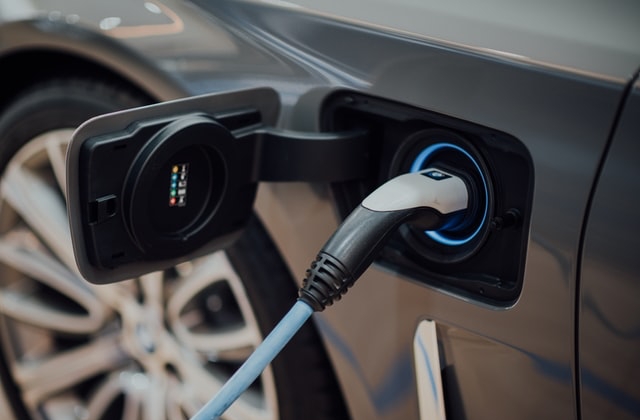Imported electric cars are set to arrive in South Korea in the coming years. Based on the report, foreign car brands are bringing at least 54 EV models to the country by 2023.
Sales increase for eco-friendly
This country’s imported car association shared this information on Tuesday, July 6. As per The Korea Herald, the new executives and board members of the Korea Automobile Importers & Distributors Association said that as the shift to electrification is becoming more evident in the industry, foreign car companies will further push the changes by bringing more EVs to the region.
“For me, it is not a question of whether or not this trend (of electric vehicles) will continue,” Mercedes-BenzKorea president and vice president of the KAIDA, Thomas Klein, said via virtual conference this week. “I think electrification of vehicles is part of the automotive future. And that will also mean that cars will be available in all price ranges.”
Audi Volkswagen Korea’s managing director and KAIDA’s chairman, Rene Koneberg, added that the number of environmentally-friendly cars that were sold in S. Korea went up to 18.1% last year, and this is a 2.5 percent increase compared to the previous year.
He suggested that the surge was because the companies that are part of the association released 10 imported EV models. For this year, the eco-friendly imported vehicles that were sold from January to April reached 30.6%, and this includes electric vehicles, hybrid cars, and plug-in hybrid EVs.
Why the imported EVs are coming to S. Korea
Yonhap News Agency reported that aside from the 54 electric car models that are coming to S. Korea, KAIDA is also planning to introduce 46 mild hybrid electric vehicles, plug-in hybrid and at least 32 hybrid vehicles in the next two years.
The move to launch these vehicles in the country comes as countries around the world announced their plans to get rid of and totally ban gas-powered vehicles by the year 2040. The declaration was to support the global efforts to reduce carbon emissions that are contributing to the worsening global warming.
The drive to reduce carbon emissions pushed the “paradigm shift" in the auto industry. This is why carmakers today are developing EVs and autonomous cars.
"The next decade will bring the same change to the automobile market as the change carmakers experienced in the past 100 years," Koneberg said.



 CK Hutchison Launches Arbitration After Panama Court Revokes Canal Port Licences
CK Hutchison Launches Arbitration After Panama Court Revokes Canal Port Licences  Washington Post Publisher Will Lewis Steps Down After Layoffs
Washington Post Publisher Will Lewis Steps Down After Layoffs  Fed Governor Lisa Cook Warns Inflation Risks Remain as Rates Stay Steady
Fed Governor Lisa Cook Warns Inflation Risks Remain as Rates Stay Steady  Nvidia, ByteDance, and the U.S.-China AI Chip Standoff Over H200 Exports
Nvidia, ByteDance, and the U.S.-China AI Chip Standoff Over H200 Exports  Global Markets Slide as AI, Crypto, and Precious Metals Face Heightened Volatility
Global Markets Slide as AI, Crypto, and Precious Metals Face Heightened Volatility  South Korea Assures U.S. on Trade Deal Commitments Amid Tariff Concerns
South Korea Assures U.S. on Trade Deal Commitments Amid Tariff Concerns  Russian Stocks End Mixed as MOEX Index Closes Flat Amid Commodity Strength
Russian Stocks End Mixed as MOEX Index Closes Flat Amid Commodity Strength  China Extends Gold Buying Streak as Reserves Surge Despite Volatile Prices
China Extends Gold Buying Streak as Reserves Surge Despite Volatile Prices  Ford and Geely Explore Strategic Manufacturing Partnership in Europe
Ford and Geely Explore Strategic Manufacturing Partnership in Europe  Oil Prices Slide on US-Iran Talks, Dollar Strength and Profit-Taking Pressure
Oil Prices Slide on US-Iran Talks, Dollar Strength and Profit-Taking Pressure  Baidu Approves $5 Billion Share Buyback and Plans First-Ever Dividend in 2026
Baidu Approves $5 Billion Share Buyback and Plans First-Ever Dividend in 2026  South Africa Eyes ECB Repo Lines as Inflation Eases and Rate Cuts Loom
South Africa Eyes ECB Repo Lines as Inflation Eases and Rate Cuts Loom  Dow Hits 50,000 as U.S. Stocks Stage Strong Rebound Amid AI Volatility
Dow Hits 50,000 as U.S. Stocks Stage Strong Rebound Amid AI Volatility  Instagram Outage Disrupts Thousands of U.S. Users
Instagram Outage Disrupts Thousands of U.S. Users  Silver Prices Plunge in Asian Trade as Dollar Strength Triggers Fresh Precious Metals Sell-Off
Silver Prices Plunge in Asian Trade as Dollar Strength Triggers Fresh Precious Metals Sell-Off  U.S. Stock Futures Slide as Tech Rout Deepens on Amazon Capex Shock
U.S. Stock Futures Slide as Tech Rout Deepens on Amazon Capex Shock  Trump Signs Executive Order Threatening 25% Tariffs on Countries Trading With Iran
Trump Signs Executive Order Threatening 25% Tariffs on Countries Trading With Iran 































